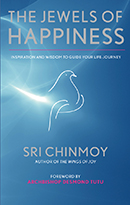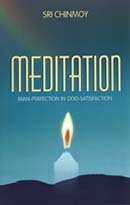Every day there is only
One thing to learn:
How to be honestly happy.

Thomas Jefferson – On Happiness
Thomas Jefferson is of course known worldwide as the author of the American Declaration of Independence and its third President, but beyond that, he was an an authority on subjects ranging from architecture to botany – and human happiness. At a lecture in the United Nations building in New York on ‘The Vision of Thomas Jefferson’, Jefferson scholar Eric Petersen had this to say about Jefferson:
Thomas Jefferson was the happiest of men. He said, “The Giver of life gave it for happiness and not for wretchedness.” Everywhere he went, he sang or hummed happily to himself. The fiddle, or the violin, was his instrument, and he was quite accomplished. As a collegian, he played in the governor’s weekly ensembles at the palace in Colonial Williamsburg. And in his sunset years, the music of his grandchildren filled the parlor of his home at Monticello, in Charlottesville, Virginia.
Thomas Jefferson said the sun never caught him in bed for fifty years. He loved nature and nature’s God. He delighted in the culture of the earth and in every bud that opened. He loved being outdoors. He spent every possible moment outside, regardless of the weather. Even when he was inside, he was conscious of the beauty, the flow, the power and the peace of nature. He once wrote “there is not a sprig of grass that shoots uninteresting to me, nor anything that moves.” ((The full lecture can be viewed on the lightandliberty.org site))
 Eric Petersen is the editor of Light and Liberty: Reflections on the Pursuit of Happiness, a unique compilation of Thomas Jefferson’s writings drawn from over 20,000 letters and other works written by Thomas Jefferson. Among the 34 chapters contained inside the book is a very incisive chapter entitled ‘Happiness’, excerpts from which are included below. (Mr. Petersen and his wife Kathryn also narrate the epilogue of the Jewels of Happiness audiobook, which is also called ‘Happiness’.)
Eric Petersen is the editor of Light and Liberty: Reflections on the Pursuit of Happiness, a unique compilation of Thomas Jefferson’s writings drawn from over 20,000 letters and other works written by Thomas Jefferson. Among the 34 chapters contained inside the book is a very incisive chapter entitled ‘Happiness’, excerpts from which are included below. (Mr. Petersen and his wife Kathryn also narrate the epilogue of the Jewels of Happiness audiobook, which is also called ‘Happiness’.)
Thomas Jefferson on Happiness:
Be assiduous in learning, take much exercise for your health, and practice much virtue. Health, learning, and virtue, will insure your happiness; they will give you a quiet conscience, private esteem, and public honor. Beyond these, we want nothing but physical necessaries and they are easily obtained.
Happiness is the aim of life. Virtue is the foundation of happiness. Utility is the test of virtue. If the wise be the happy man, as the sages say, he must be virtuous too; for, without virtue, happiness cannot be. Interesting occupations are essential to happiness. Indeed, the whole art of being happy consists in the art of finding employment. A mind always employed is always happy. This is the true secret, the great recipe, for felicity. The idle are the only wretched. The Giver of Life gave it for happiness and not for wretchedness.
All men are endowed by their Creator with inherent and inalienable rights; among these, are life, liberty, and the pursuit of happiness. Perfect happiness, I believe, was never intended by the Deity to be the lot of one of His creatures in this world; but that He has very much put in our power the nearness of our approaches to it, is what I have steadfastly believed.
Service
Nothing makes me more happy than to render any service in my power, of whatever description. There are minds which can be pleased by honors and preferments; but I see nothing in them but envy and enmity. It is only necessary to possess them, to know how little they contribute to happiness, or rather how hostile they are to it. Honesty, disinterestedness, and good nature are indispensable to procure the esteem and confidence of those with whom we live, and on whose esteem our happiness depends.
Happiness and Government
The only orthodox object of the institution of government is to secure the greatest degree of happiness possible to the general mass of those associated under it.
How soon the labor of men would make a paradise of the whole earth, were it not for misgovernment, and a diversion of all his energies from their proper object—the happiness of man,—to the selfish interests of kings, nobles, and priests. If we can prevent the government from wasting the labors of the people, under pretense of taking care of them, they must become happy. We who have gone before have performed an honest duty, by putting in the power of our successors a state of happiness which no nation ever before had within their choice.
If, in my retirement to the humble station of a private citizen, I am accompanied with the esteem and approbation of my fellow citizens, trophies obtained by the blood-stained steel, or the tattered flags of the tented field, will never be envied. The care of human life and happiness and not their destruction, is the first and only legitimate object of good government. We wish the happiness and prosperity of every nation.
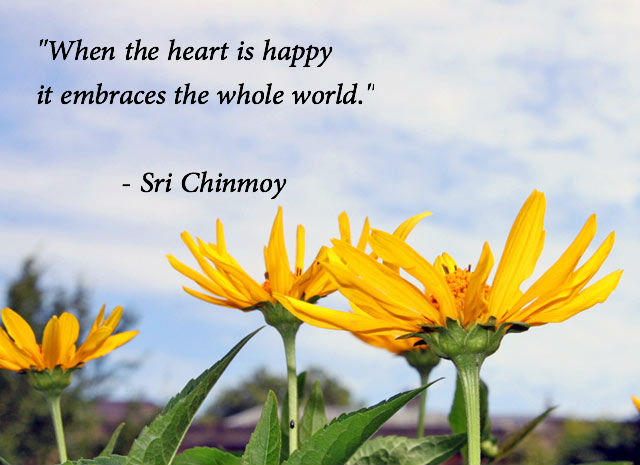
What is happiness?
Happiness is something we all seek in a variety of different ways. But, what actually is real happiness?
When I think of happiness, the first things that spring to mind include:
- Peace of mind and the absence of mental disturbance.
- A feeling of goodwill to others and the rest of the world.
- A feeling of spontaneity and living in the moment.
I would say real happiness comes from within, from our state of mind; it is a state of consciousness. It is the happiness that is unaffected by outer circumstances. Real happiness does not depend on material success or material wealth, but from an inner sense of fulfilment – perhaps leading the life we were meant to lead. When there is real happiness and satisfaction, we feel joy springing from within. This happiness makes even the mundane interesting and the ordinary beautiful.
Absence of fear, worry, anxiety
If we have tension, fear or anxiety, we are not happy. For example, we might get a temporary thrill out of cheating someone. Part of us likes the danger, the excitement, but however hard we try, our conscience doesn’t allow us peace of mind. Real happiness can only come when we have peace of mind and are not thinking about the future or the past.
False happiness and real happiness
False happiness can involve mental hallucination, temporary pleasure or ego gratification, but this kind of happiness has no sense of inner peace. There is always the gnawing fear that it will soon dissipate. When we chase false happiness, our conscience is always biting us. Real happiness comes from a sense of self-giving and growing into a higher reality. When we pursue real happiness, our conscience is clear and we feel a reassuring sense that our happiness can last. Real happiness is never built on favourable circumstances in the outer world. Real happiness is built on offering something positive to the world.
Childlike simplicity
“The man is happiest who lives from day to day and asks no more, garnering the simple goodness of life.”
– Euripides
If we have a childlike simplicity, we will find joy in the simplest of activities. We will feel happiness through the spontaneity of living in the present moment. This spontaneity means we are happy with who we are and are not trying to be someone else – just living as we are. This is real happiness because our mind has no complications to take away from the inner spontaneity of the soul.
Giving happiness
The soul’s philosophy is:
Give happiness constantly,
Give happiness unreservedly,
Give happiness unconditionally.– Sri Chinmoy ((Sri Chinmoy, Seventy-Seven Thousand Service-Trees, Part 6, Agni Press, 1998.))
“Thousands of candles can be lit from a single candle, and the life of the candle will not be shortened. Happiness never decreases by being shared.”
– Gautama Buddha
Happiness that comes from within
Most people are about as happy as they make up their minds to be.
– Abraham Lincoln
Sometimes we can look at the weather on a rainy day and say to ourselves: “It is a miserable day.” On other days, we may feel that the rain has a real charm. It’s not the weather that determines our happiness. It is our approach – our reaction to the weather. This shows how happiness stems from the way we look at the world, the way we see ourselves.
Following our inner call
True happiness
Is not a mental hallucination.
True happiness
Is not a complacent feeling.
True happiness
Is the spontaneous feeling of joy
That comes from knowing
You are doing the right thing
And leading a divine life.– Sri Chinmoy (( Sri Chinmoy, Ten Thousand Flower-Flames, Part 91, Agni Press, 1983. ))
Sometimes, we just know we are doing what we are supposed to do. It may not be particularly glamorous or outwardly attractive, but we feel we are doing something that our soul wants us to do. Often we can be surprised at what is giving a sense of satisfaction. It requires us to try to listen to our inner voice, our conscience. It may require ignoring conventional wisdom or expectations. Only by listening to our inner voice can we know what will give us true fulfilment.
Acceptance
How do I find happiness?
I find happiness
By loving the world more,
Ever more.– Sri Chinmoy (( Sri Chinmoy, My Christmas-New Year-Vacation Aspiration-Prayers, Part 45, Agni Press, 2006.))
We can never have real happiness if we constantly think in terms of superiority and inferiority: for example, if we are frequently comparing and judging ourself in relation to other people.
If we live to fulfil our desires, we will always be wanting something more, we will always feel unfulfilled, unsatisfied. If we get what we desire, we are temporarily relieved; but if we don’t get it, we will have great frustration. If we just accept and love, then we will know happiness.
What is happiness?
Happiness is the absence of negativity. It is a consciousness in which we feel grateful for the beauty of life. Happiness gives us peace of mind and a positive outlook on life. Happiness is a state of being that we want to share with other people.
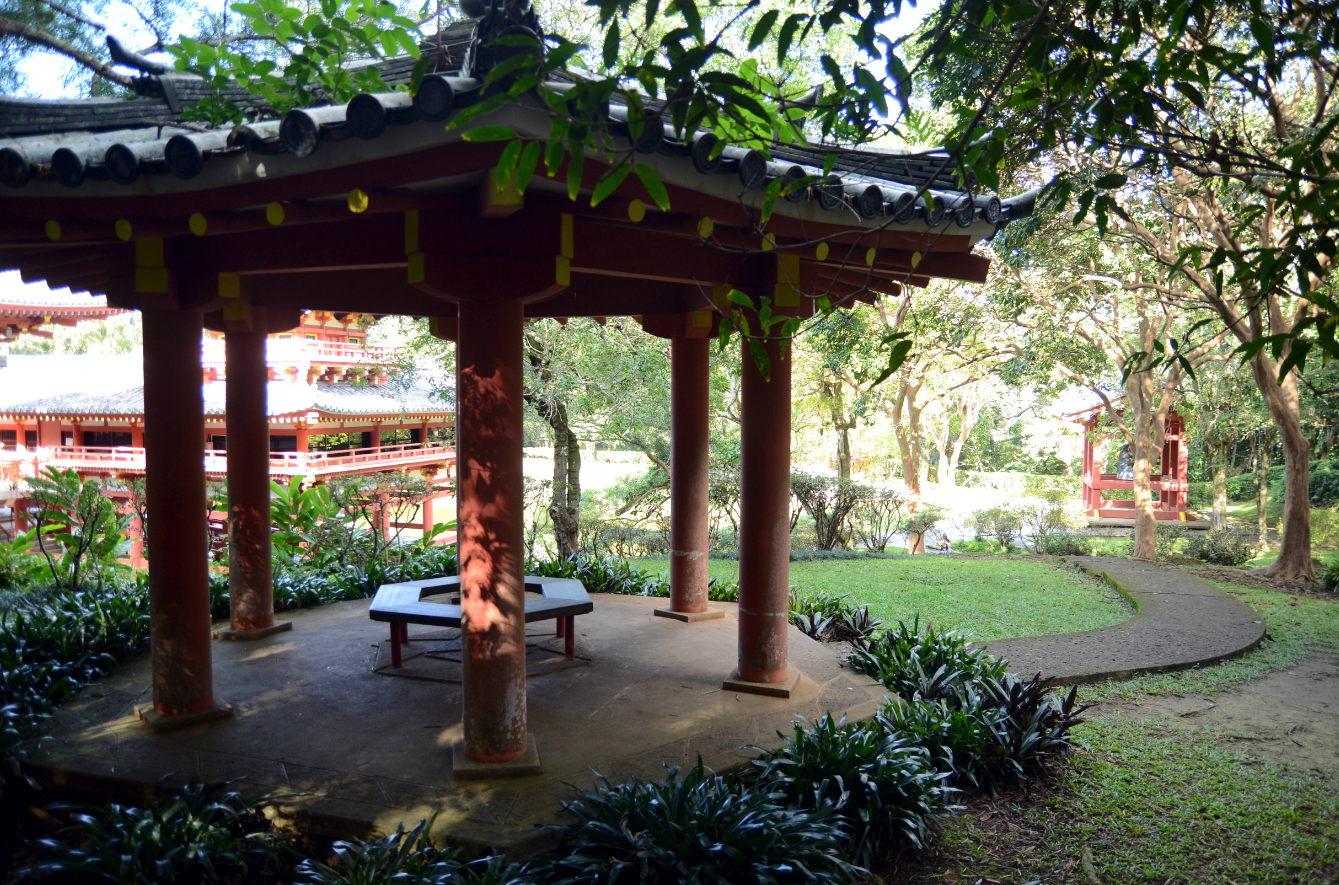
Humility: What It Is and Is Not
I am really interested in humility because for a long time I had hardly any of it. I had a great deal of pride in how much I knew, in how important a job I had, in how much money I was making. My idea of a good time was working a conversation around to an area in which I thought I excelled, and then putting someone else down for being inferior to me! It may sound like it wasn’t much fun, and it wasn’t; but at the time I didn’t realize what I was doing, and how unhappy it was making me.
Mercifully, as I began to make progress in the spiritual life, I began to become conscious of what I was actually up to, and then, very gradually, I began to pray for an end to my arrogance. I was extremely fortunate in having a spiritual teacher (Sri Chinmoy) with a great sense of humor.
Humility has a bad rap in part because when people hear the world “humility” they often think of humiliation. But it is a mistake to put humility in the same box with humiliation. The two words have a common Latin root; but while humiliation refers to the situation where another person uses their power to put us down, true humility is entirely different. Another negative aspect of humility relates to the display of false humility, something we have all seen when a person makes a show of pretending to be inferior to us, while actually conveying the impression that they, in fact, are really superior. In both of these negative connotations, there is also a suggestion that possessors of humility lack a healthy appreciation of their own strengths.
If humility does not mean humiliation, and does not mean false humility, then what does it mean? To answer this question, I will offer some quotations from the chapter on “Humility” in Sri Chinmoy’s book, The Jewels of Happiness. In this book, Sri Chinmoy rescues humility from the unfortunate associations mentioned above and offers the reader invaluable insights into the real meaning of this misunderstood quality.
Humility means giving joy to others. By making others feel that they are either equally important or more important, we will show our true humility. Offering joy to others first is the way to show true humility. ((From The Jewels of Happiness by Sri Chinmoy, p. 173))
This approach is at the opposite end of the spectrum from trying to show others how superior one is, isn’t it? Once pointed out, it doesn’t take a rocket scientist to see that giving joy to others is not only kinder, but also more likely to lead to one’s own happiness than the other way. Sri Chinmoy noted, “…if we want to become humble, it is certainly because we want to become happy. And in self-giving we become truly happy. Real humility is the expansion of our consciousness and our service. Let us always try to develop these good qualities within us and then humility is bound to come.” ((From The Jewels of Happiness by Sri Chinmoy, p. 182))
Humility is the feeling of sweetest oneness. If we are humble, then the other person will immediately open his heart’s door so that we can enter into his heart and he can enter into ours. If we are humble, the whole world will open its heart to us. ((From The Jewels of Happiness by Sri Chinmoy, p. 184))
Oneness means something like what psychologists call ’empathy’, but, according to my understanding, it is more enduring. One can try to empathize with another and then return to seeing things from one’s own point of view. If one feels oneness with another, then their goals become one’s own.
Although this is not a book review, I must say that anyone interested in either humility or happiness (or peace, love, joy or any of the other topics covered in the book) should rush to Amazon and buy a copy of The Jewels of Happiness! As for myself, although in many ways I am still a work in progress, I can say that humility has now become a part of my nature.

Wet, Cold, Suffering…and Happy
An independent bookstore is a splendid place. The books may not cover an area equal to that of a football field, but they are many and they are varied and they are almost all extremely interesting. Not only are the books interesting, but it is likely that the workers are as well; that the person behind the counter may have actually read a book or two – an achievement not to be assumed in a chain store – and that they may, therefore, have some interesting suggestions or comments to make on matters concerning books.
I went into Time Out Books at the foot of Mount Eden to buy Scott Jurek’s book Eat and Run. I had bought a copy for myself earlier online – this one was for a Christmas present. Inevitably I spent a long time drifting round the shelves – here an interesting book on ecologically sustainable interior design, there a tale of an anthropomorphic platypus. Eventually I circled round to the small sports section, which, inevitably, had Scott Jurek’s book and Christopher McDougall’s book and a handful of other provoking and stimulating books and no dull, ghost-written autobiographies of national team captains or coaches.
I took the book to the counter. “Are you planning on running an ultra-marathon?” the young woman behind the counter asked.
“Well …” I mumbled hesitantly, “I have run a few already, actually.” Her face lit up, her eyes grew round, she practically jumped up and down with excitement. “How far?” Now, I am not one to talk to strangers and I am not one to talk about myself even to people I know, but I had already gone this far, so I recklessly plunged on.
Well, the longest race I’ve run … I did … 830 kilometres.
If I had been buying The Brothers Grimm and had casually mentioned that I was myself actually a unicorn, the effect would not have been much different.
She was, she said, fascinated by ultra-marathoning. She had herself run one half-marathon, and when I said that that was a fine achievement, she dismissed it as pathetic and of no account.
The interrogation began. Several times she said, “I’ll let you go, but just one more question …” Her questions went on, tending ever more to the more metaphysical: How long did I train each day … had I collapsed … did I get injuries … did I cry (only once) … had I read Haruki Murakami’s book (in fact, she managed, in the middle of our conversation, to sell me the book) … was I happy?
This last question intrigued her most. When I admitted that I was often quite irascible when running long distances, she wanted to know if this was compatible with my claim to be happy.
I was reminded of the most recent ultra-marathon in which I had competed– the New Zealand 24-hour National Championship–the sixty-ninth ultra-marathon of my running career.
The race was held at Sovereign Stadium. It had been held at this location for the previous fourteen years. It is a notoriously exposed spot, and this particular early spring day the wind was pounding around the hills in just such a manner as to blast directly up one side of the 400-metre track. There were times when it was extremely difficult to make headway against that wind.
The rain was not constant but it was heavy and cold and it was definitely wet. This year the conditions were unanimously judged to be the worst that the runners had ever had to endure.
I was circling the track at 1 a.m. The spectators had mostly gone; even a certain percentage of the competitors had disappeared into the welcoming comfort of downy sleeping bags in dry tents trackside – the “graveyard shift” they call it.
There was one soul still braving the elements alongside the slowly moving runners – a photographer, unobtrusively about his business in the dark. He spoke to me briefly. It turned out that earlier in the year, I had had a conversation with him …
… in the middle of another dark and rainy night in the depths of an ultra-marathon–the gruesome Northburn 100 (“You don’t race it, you survive it.”)– high on a barren, wind-blasted hilltop in the wastelands of Central Otago, at midnight, before the snow set in.
“I never forget a face,” he said – a result of being a photographer, I guessed.
His name was Paul Petch. Some time after the race he posted on his website the photographs he had taken that night. I was impressed by the artistry of them. These were not the standard dreary snaps; these were evocative works of art, each one. Mostly black and white, the pictures captured the certain bleakness of the “graveyard shift.” And yet – and yet, they hinted also at something deeper.

Dhiraja during the graveyard shift
There was one image he had captioned: “Wet. Cold. Suffering. Happy.”In that one image, and in the caption that described it, he had captured the paradox of the ultra-runner’s path. In the mundane world, those four words do not – cannot – belong together.
And yet to the ultra-runner, that paradox is central to his or her experience. I am cold; I am wet; I am suffering; I want to stop; I want to go home; I do not want to stop; I am happy.
I have now read Haruki Murakami’s book on running – What I Talk About When I Talk About Running. I told the woman in the bookshop that I would come back and complain to her if I didn’t enjoy it. I did enjoy it. It is a strange little book – quiet and gentle. Murakami – who “ranks among the world’s greatest novelists” – writes in that book:
“Either way, when I look back on that race now I can see that it had a lot of meaning for me as a runner. I don’t know what sort of general significance running sixty-two miles by yourself has, but as an action that deviates from the ordinary yet doesn’t violate basic values, you’d expect it to afford you a special sort of self-awareness. It should add a few new elements to your inventory in understanding who you are. And as a result, your view of your life, its colours and shape, should be transformed. More or less, for better or for worse, this happened to me and I was transformed.
… when I reached the finish line in Tokorocho, I felt very happy … for the first time in half a day I sat down and wiped off my sweat, drank some water, tugged off my shoes, and, as the sun went down, carefully stretched my ankles. At this point a new feeling started to well up in me – nothing as profound as a feeling of pride, but at least a certain sense of completion. A personal feeling of happiness and relief that I had accepted something risky and still had the strength to endure it.”
If I do go back to Time Out Books – and the design book did look particularly interesting – I will reiterate to the woman behind the counter, after I have thanked her for recommending Murakami’s book: “Yes, it is possible, I am happy – Wet. Cold. Suffering. Happy.”

Is happiness achievable?
There is a story from an old spiritual tradition that tells about a rich man who loses all his possessions and becomes as poor as a street beggar. Instead of lamenting his fate, the man starts to laugh and dance with joy. To the bewildered bystanders he explains, “I am dancing because since things cannot get any worse than they are now, they can only get better.” But when by a miraculous turn of events the man regains all of his previous wealth, instead of rejoicing, he starts weeping bitterly. “Alas” he cries out, “now that I am at the peak of good fortune again, things can only get worse.”
The moral of the story of course is to be detached from both joy and sorrow, since our fate is always dogged by these two opposites. The ancient Greek philosophers had a similar view of life, albeit somewhat gloomier. They argued that a man’s life was composed either of joy and sorrow or, if he wasn’t thus fortunate, only of sorrow. A joy-only version did not exist. That is why the ancient Greeks considered the greatest fortune that could befall a human being was not to be born at all.
 For a seeker of enduring happiness these are somewhat dismaying conclusions. Is it really not possible to have a life composed primarily of happiness? Does sorrow always have to enter into the mix? Or, to rephrase the question: Is a state of permanent and lasting happiness achievable?
For a seeker of enduring happiness these are somewhat dismaying conclusions. Is it really not possible to have a life composed primarily of happiness? Does sorrow always have to enter into the mix? Or, to rephrase the question: Is a state of permanent and lasting happiness achievable?
If by permanent happiness we mean that nothing bad ever happens to us, that no misfortune will ever befall us, the answer has to be “no.” Into each life some rain must fall, as the wise singer sang. But if by lasting happiness we mean that despite the misfortunes and the ill-fated turns that life may take, we can have access to an indestructible source of cheerfulness and joy, the answer is a resounding “yes.”

Over the centuries spiritual masters, yogis, saints and sages have all told us that permanent happiness lies within. It is a state of consciousness that can be brought to the fore through prayer and meditation. If we practice these spiritual disciplines we will discover that our soul, the spark of divinity within us, is all happiness. Like a fountain, this happiness wells up spontaneously in the silence of our heart.
Once we start experiencing this happiness, life loses its venomous sting. Even when things go terribly wrong in our outer life, we are not disturbed, nor do we become miserable. We simply deal with the circumstances the best way we can, without worrying about them. The peace and happiness of our soul can never be overpowered by these outer happenings. So even when some rain is falling in our outer life, we can always have sunny skies within.
It seems hard to believe that we have this source of joy and happiness inside. It is quite common to doubt its existence. I was also skeptical in the beginning and didn’t think I would ever attain such noble inner qualities. The only answer is to just start practicing and not give up. Then prayer and meditation will show you that permanent happiness is just your natural state of being–whether you believe it or not.

The Wonderful Benefits of Gratitude
My spiritual teacher, Sri Chinmoy, once told a story about one of his brothers to illustrate the concept of gratitude. When his brother had graduated in India, as was the tradition, he received a flower garland. Directly after the graduation ceremony, this brother paid a visit to his old elementary school teacher and placed the garland at his feet. He said, “You are the source of my learning, so you deserve this garland.”
The reason this anecdote moved me is because it depicts such a beautiful and pure expression of gratitude. “Gratitude is the sweetest emotion in the human life,” Sri Chinmoy said. “Nothing is as important or meaningful on earth as gratitude.”

The medieval German mystic Meister Eckhart once wrote, “If the only prayer you said in your whole life was, ‘thank you’, that would suffice.” ((http://www.goodreads.com/author/quotes/73092. Meister_Eckhart)) His aphorism sounds contradictory, for most of the time when we pray we ask for something – whether it be love, strength, health or material prosperity. Usually we say “thank you” only in the end, when our prayer or desire is fulfilled. And often when we say it, there is no real life or feeling behind it. It’s something we say out of politeness. But real gratitude is much more than saying “thank you.” Real gratitude is always wreathed in an elevating feeling of true appreciation and love. Real gratitude therefore is quite rare and grossly underestimated.

“The things that most deserve our gratitude we just take for granted,” Sri Chinmoy writes in The Jewels of Happiness. “Without air we cannot live for more than a minute or two (…), but do we ever feel grateful to the air? If we do not drink water we cannot survive. (…) But do we give any value to water? Every morning when we open our eyes we see the sun blessingfully offering us light and life-energy, which we badly need. But are we grateful to the sun?” By taking them for granted we lose sight of how beautiful and good air, water and sunlight really are.

Many things in life we just take for granted. By being grateful we let life astonish us again, like it did when we were children. We become conscious of all the little expressions of goodness that are showered on us every day. Only when we really count our blessings do we realize how many there are: the birds whistling, a tree in full blossom, a beautiful song on the radio, the company of friends. Instead of taking these things for granted, we can be grateful and realize how special they are, even if we experience them every day. Gratitude has the capacity to pull us out of the daily grind, so we can experience life at a deeper, more meaningful level.
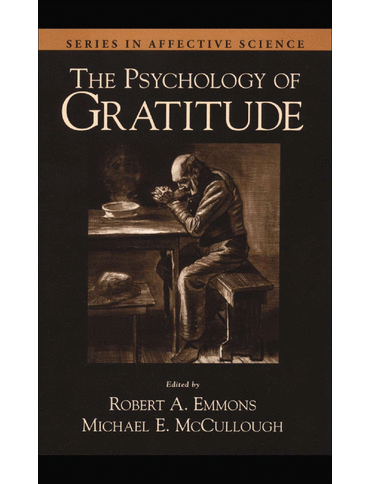
Even scientific research has shown that gratitude leads to happiness. U.S. psychologists Michael McCullough and Robert Emmons studied the effects of gratitude on people by dividing them into three groups. The first group had to write down five things they were grateful for each week, which led to entries like “waking up this morning,” “the goodness of friends” and “the Rolling Stones.” The second group had to write down five things each week that had upset or irritated them, like fruitlessly looking for a parking place, a dirty kitchen or financial problems. The third group just had to write down five things that had influenced them that week, without classifying them as either positive or negative. People were randomly assigned to the three groups, so that the “irritation group” included some natural optimists, and several pessimistically inclined respondents landed in the “gratitude group.”
The results of the survey were astonishing. At the end of the study period, people in the gratitude group were more optimistic, enthusiastic and cheerful than people in the other two groups. Their score on a scientifically constructed happiness-scale was a good 25% higher. The grateful respondents suffered significantly less from health problems, depression and stress, and exercised more. A repeated study revealed even more benefits: Gratitude ensured better quality of sleep, a more pleasant and richer social life and made people more helpful and caring. Emmons and McCullough wrote a book about their findings, The Psychology of Gratitude, and concluded, “Gratitude is one of the few attitudes that can measurably change peoples’ lives.”
How to you develop gratitude? Here are five tried and tested methods:
 1. The gratitude diary
1. The gratitude diary
Like the respondents in McCullough and Emmons’ research, you, too, can keep a diary where every week or even every day you write down five things you are grateful for. They can be either small – a smile from a stranger, a beautiful flower in the garden – or big – your family or friends, a breakthrough insight. Also try to write down the reasons why you are grateful for them. For greater effect, you can enrich your diary by adding pictures, cut-outs from magazines, drawings or poems.
2. Enjoy consciously
Whenever something good happens to you, take the time to really enjoy the moment consciously. Again these moments can be big or small – a singing bird, a pleasant breeze, a new job, a beautiful holiday… Consciously enjoying the moment when it happens is an expression of your gratitude. Research has shown that conscious enjoyment strengthens the positive feelings of the experience.
3. Be happy in other people’s happiness
One of the most effective ways to develop gratitude is to be happy with the good fortune that befalls others. Often other people’s success makes us jealous. But when we realize that the happiness and good fortune of others can contribute to our own happiness, we can be grateful for it. As author Alan Cohen writes in his book Handle With Prayer: “The fact that a particular person and his or her experience is in your field of awareness means that you are capable of creating the same for yourself, and you are probably close to it. Instead of cursing another as a detractor from your good, bless this person as a harbinger of your own miracles.”
4. Write a thank-you letter
Write a letter to somebody that has helped you or inspired you or has been important to you in some way, but whom you haven’t thanked explicitly yet. In your letter of gratitude write down why you are grateful to that person. Try to be specific and detailed. You can mail the letter, but you get far better results if you visit the person and read the letter out in person or have him or read it out in your presence. This method yields great results for both the writer and the receiver.
5. Become a gratitude-flower
This meditation exercise from Sri Chinmoy can also help you develop gratitude. Imagine a beautiful and fragrant flower that is blossoming inside your heart. This is the flower of gratitude. Visualize the flower and try to imagine smelling its sweet fragrance. Then try to identify yourself with the beauty and fragrance of the flower. After a few minutes, try to feel that you yourself have become this gratitude-flower. When you can consciously identify yourself with the flower, you become gratitude itself.
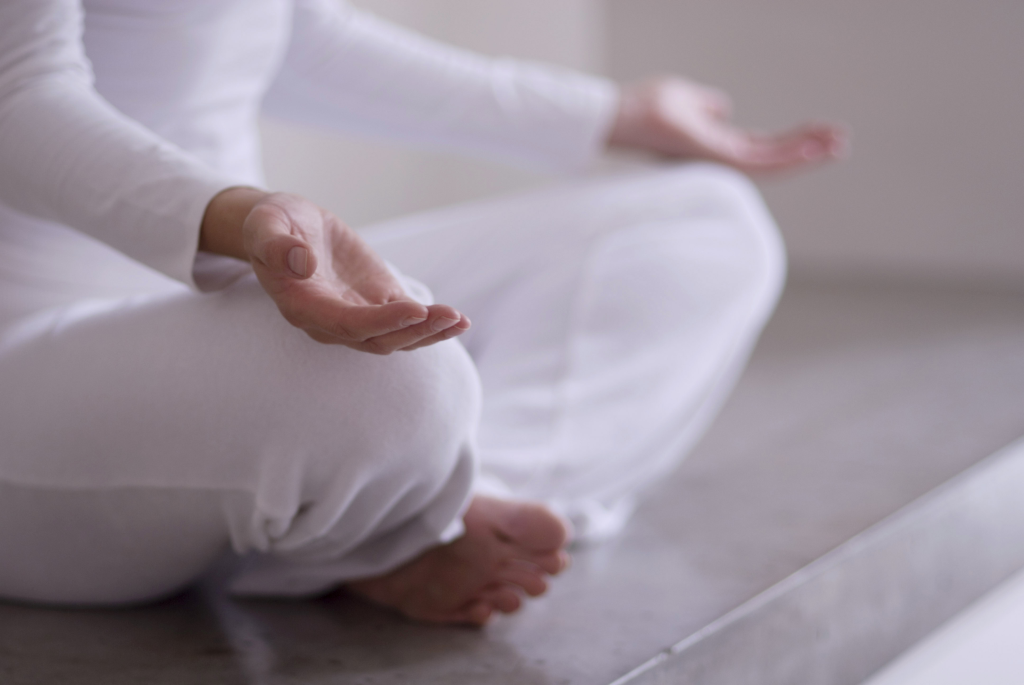
Discipline: The Foundation of Happiness
On a day sometime in the year 1996, I decided to meditate. At 19 years of age I was reading my first spiritual book, Shambala, the Sacred Path of the Warrior. In its pages I found a simple meditation technique, which focused on observing breath and thought. The author advised practicing the technique daily. I simply did as the book said and practiced daily. From that day in 1996, up until now, in 2013, I haven’t missed a day of meditation. And I have seen the weather of my life change from mildly overcast with chances of rain to bright and sunny skies with light and pleasant breezes.
Discipline has always come easily to me. One day in my teens my dad told me to store my bicycle in the shed after coming home from school. I remember doing it promptly and following suit every day since. My sister however couldn’t get her head around it. It led to the same daily ritual – my father would remind her to put the bike away and my sister would reply, “In a minute!” Mild irritation often ensued from both ends. In the same vein my sister would forget to put the lid back on the toothpaste. She would also forget to dry the bathroom floor after taking a shower, no matter how many times I pleaded with her. We got along swell, but in the discipline field my sister and I were at opposite ends of the spectrum. This made me realize that discipline does not come naturally to everyone.
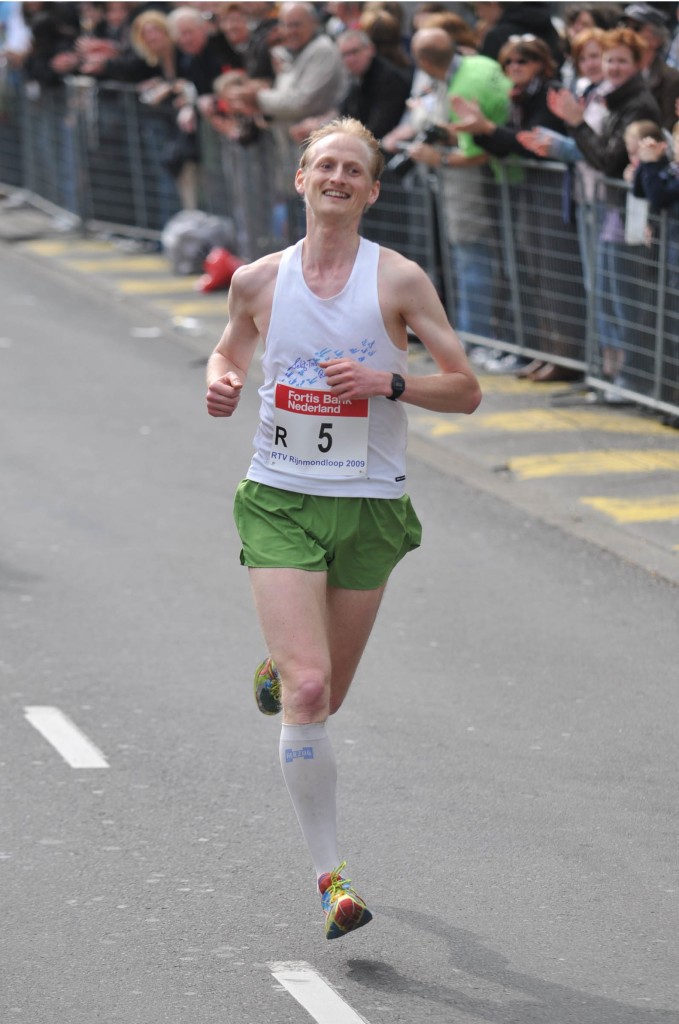 When I became a runner, discipline was a great help. I never had any qualms about going out the door for my daily run. Then when I became a student of Sri Chinmoy and learned that he advised his students to meditate at 6 a.m., I set my alarm at 5:45 and became an early riser from that day on. My body and mind always seemed to obey the plans I laid out for them, without much protesting. I think they realized that it was the price we had to pay for satisfaction, for after my meditation and after my run I always felt happy. Why others hadn’t come to the same conclusion was a mystery to me.
When I became a runner, discipline was a great help. I never had any qualms about going out the door for my daily run. Then when I became a student of Sri Chinmoy and learned that he advised his students to meditate at 6 a.m., I set my alarm at 5:45 and became an early riser from that day on. My body and mind always seemed to obey the plans I laid out for them, without much protesting. I think they realized that it was the price we had to pay for satisfaction, for after my meditation and after my run I always felt happy. Why others hadn’t come to the same conclusion was a mystery to me.
In one of his aphorisms Sri Chinmoy writes, “My best qualities are those that I am totally unaware of.” All of us have good qualities ingrained in our nature from birth. Since we grow up with them not knowing any different, there is a tendency to take them for granted.
For a long time I took my discipline for granted. But when I started my spiritual life I began to realize my good fortune. I saw others struggling with early morning meditation, daily prayers, running to stay fit and all those good things we tried to mix into our daily routines to make spiritual progress and become happier people. Later, when I started giving meditation classes for the public, I saw how difficult it was for people to meditate regularly. I started to realize that discipline is not something common, but a rare and precious thing, something to treasure and be grateful for.
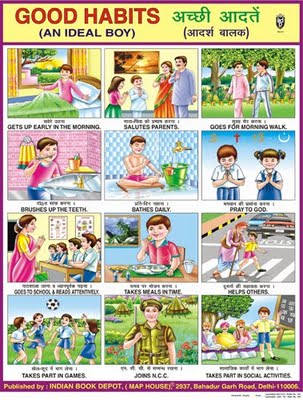
What is the difference between a good habit and a bad habit? The obvious difference is that bad habits make us miserable and good habits give us joy and satisfaction. But there is also a subtler one. Bad habits are easy to start, easy to continue and difficult to give up. Good habits, however, are difficult to start, difficult to continue and easy to give up. Compare smoking to meditation and you see that this is true. When you follow this simple but very true statement to its logical conclusion, you see that the deciding factor is discipline. Bad habits don’t require any of it. Good habits do.
Discipline is the foundation for a happy life, for it helps us to build and sustain good habits – things like regular meditation, daily exercise and a healthy diet. Discipline is the philosopher’s stone that can change the lead of human nature into the gold of the divine consciousness. Sri Chinmoy writes, “If I have to choose which quality is most important and fulfilling at the beginning of the spiritual life, then I must say that it is self-discipline. Our mind is a victim to doubt, worries, anxieties and so forth. A disciplined life will not have the same fate. It will have joy and peace.”
 How to acquire discipline? First of all, it may be useful to realize that we are already disciplined to a certain extent. We all get up every morning, even though our body may want to sleep longer. We go to work or school, even though our mind sometimes would prefer to stay home. We cook dinner, brush our teeth, do our homework, fill out tax papers, buy birthday gifts, clean our house, and perform countless tasks and duties that require a certain degree of discipline. So discipline is not something foreign to us. It is already there.
How to acquire discipline? First of all, it may be useful to realize that we are already disciplined to a certain extent. We all get up every morning, even though our body may want to sleep longer. We go to work or school, even though our mind sometimes would prefer to stay home. We cook dinner, brush our teeth, do our homework, fill out tax papers, buy birthday gifts, clean our house, and perform countless tasks and duties that require a certain degree of discipline. So discipline is not something foreign to us. It is already there.
But what is most important is to value your goal. Whether that goal is peace of mind or a clean kitchen, if you want it hard enough, discipline will come automatically. An athlete dreaming of an Olympic gold medal doesn’t have to force himself to train. His dream gives him the necessary strength to discipline himself. So write down your goal on a piece of paper and hang it somewhere where you can easily see it. If the goal is peace, then the means to achieving peace is daily meditation. If you really need peace, then you will meditate daily. There is no magic formula involved, other than two simple three-word sentences: “Just Do It” and “Never Give Up.” If you stick to these two mottos, you have uncovered the secret to discipline. And when discipline is born, the fulfillment of your life’s dreams is only a matter of time.
 Patience is needed. Sri Chinmoy writes, “A disciplined life comes from constant practice. What does practice mean? Practice means patience, patience-light. Slowly, steadily, we have to discipline our life. If we are in a hurry, we can never discipline our life.” You can’t change overnight. So be kind to yourself without being indulgent, and give yourself time.
Patience is needed. Sri Chinmoy writes, “A disciplined life comes from constant practice. What does practice mean? Practice means patience, patience-light. Slowly, steadily, we have to discipline our life. If we are in a hurry, we can never discipline our life.” You can’t change overnight. So be kind to yourself without being indulgent, and give yourself time.
You may think this all sounds easy coming from someone who has never had to work for discipline. True, discipline was the silver spoon in my mouth. But there are many people not innately blessed with discipline who have earned it through their own sincere efforts. They have changed their lives for the better. It can most certainly be done. Why not give it a try?
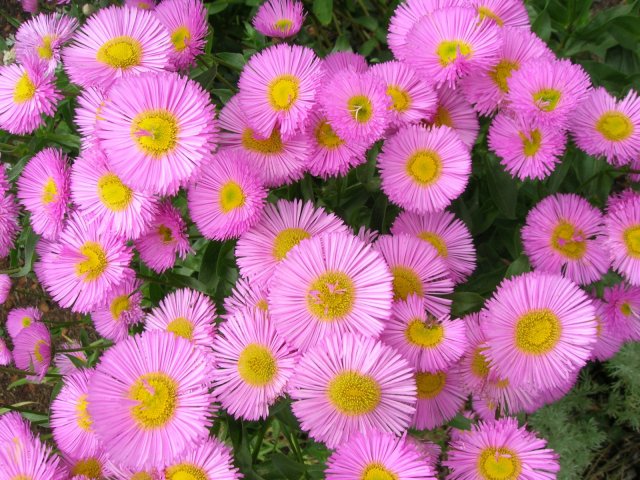
Why are people so unhappy?
Tragically, there are large numbers of people in the world who are unhappy because they do not have enough food to eat, do not have enough clothing to wear, do not have a place to live, or reside in an active war-zone. The reflections that follow are not addressed to people in these life situations, although I believe that a change in the thinking and behavior of the rest of us could have an enormous impact on the lives of the most unfortunate among us. I hope to show at least a glimmer of that possibility in what follows.
Some of the major sources of our unhappiness are: the mistaken belief that possession will lead to fulfillment; our lack of oneness with others; and our failure to know our own true nature. I was unhappy for the first several decades of my life, even though I was well-educated, employed in an interesting job, married to a man of the same background as myself and mother of two delightful children. I had a major break-through in happiness when I entered a spiritual community and became a student of my meditation teacher, Sri Chinmoy. Sri Chinmoy was born in Bengal, India (now Bangladesh), in 1931, and came to the West to offer teachings in spirituality in 1964. He passed behind the curtain of Eternity in 2007. Sri Chinmoy is well-known as a peace-visionary, spiritual guide, writer, musician and athlete. As his student, I had a profound experience of being loved, and it is thanks to his love, his example and his instruction that in recent years I have begun to experience genuine happiness.
I am very happy
Because I have conquered myself
And not the world.
I am very happy
Because I have loved the world
And not myself.
I am very happy
Because I have not surrendered
Either to the world or to myself.
Sri Chinmoy ((The Divine Hero, London: Watkins Publishing, 2002, pp. 19-20))
This poem, though very brief, reveals a few of the most important paths to happiness. Or, to look at the reverse side of the picture, some of the major sources of our unhappiness are the mistaken belief that possession will lead to fulfillment; our lack of a feeling of oneness with others; and our failure to know our own true nature. I will try to convey, in my own words, just a few drops of the vast ocean of wisdom that Sri Chinmoy offered in each of these three areas.
How do we go about not conquering the world? Those of us who live in the West are exposed repeatedly to the misinformation that having more and better possessions will lead us to be happy. It is hard to shake off the belief that if only we could get a higher salary, a more beautiful home, a thinner body and nicer clothes, then we would be happy. This ignorant emphasis on possession often extends even to our beliefs about our relationships. Thus, we want the perfect mate, and think that if we could only possess him, then we would really be happy! Everyone who has tried to live her life according to the belief in the power of possession has discovered its falsity. The pursuit of power is just a variation on the pursuit of possession: We mistakenly believe that if we possess power we will be able to bend others to our will.
When the power of love
Replaces the love of power
Man will have a new name: God.
Sri Chinmoy (( The Wings of Joy, Fireside Books: New York, 1997, p. 107))
Having grown up in the dog-eat-dog world of New York City, it was easy for me to believe “each man for himself, and may the best man win.” Without stopping to philosophize about it, I focused more and more on my own needs and desires, and on those of my husband and children. Paradoxically as it seemed then, the more my husband and I narrowed our focus to each other, the more miserable we became.
When I started to study with Sri Chinmoy and first heard the word “oneness,” it took some time for me to understand what it meant. I think it means loving the world (not that we should not love ourselves, but that our identification with others and their needs should be the motivating force in our lives). Sri Chinmoy, who unhesitatingly devoted himself to the service of humanity, strongly recommends that we serve others, not only because it is good for them but because it is good for us. I notice that when I “lose myself” in a project that will bring benefit to others, I find happiness effortlessly. When I send a check to UNICEF, I feel good about myself. When I see the world from my son’s point of view, we are both more content.
Well, it sounds great, to conquer ourselves, to love humanity, and to know our own true nature, but how are we going to bring about these remarkable transformations? And what does Sri Chinmoy mean when he wrote, “I have not surrendered/ Either to the world or to myself”? Sri Chinmoy, in company with the most revered sages of the East, teaches that the first steps towards conquering ourselves, loving the world, and realizing the Highest, begin with the daily practice of meditation and prayer. I have found it to be so.
Although still a beginner, after many, many days of practise I have taken a few steps towards conquering myself, am beginning to care about others sincerely, and have occasional glimpses of God within myself and others. My goal is to not surrender to my superficial desires, or to the desires or preferences of others, but to try to know what He wants from me and to do it willingly.
It may take us a long, long time, but I think our unhappiness will end when we all, finally, learn to look for our answers not in our desires, not in our self-interest, but in our highest Selves.
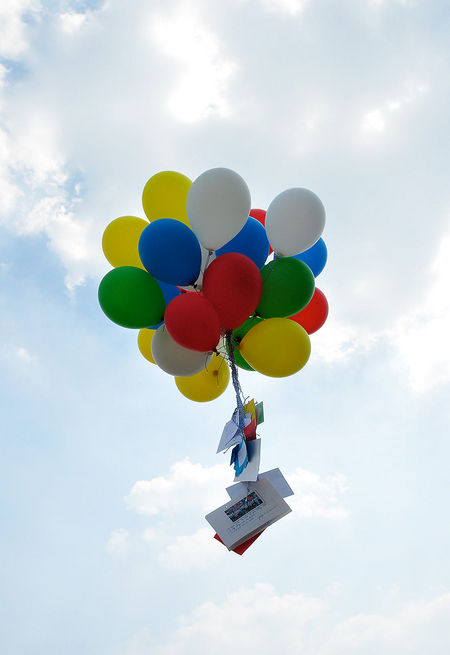
Celebrating the International Day of Happiness
The United Nations General Assembly, in a proclamation recognising the “relevance of happiness and well-being as universal goals,” adopted 20 March as the International Day of Happiness. Here are some events to mark the occasion that the Jewels of Happiness team were involved in:
Launch of The Jewels of Happiness Audiobook
An audiobook of The Jewels of Happiness was released on March 19th in a launch that took place at the United Nations Headquarters in New York.
Over 500 United Nations ambassadors, delegates and staff, as well as members of NGOs, were present at the launch. “These sweet gems of wisdom by my dear friend Sri Chinmoy are timeless truths full of encouragement, love and goodness,” Nobel Peace Laureate, Archbishop Desmond Tutu, said in a video message. Renowned composer Philip Glass performed on the piano while Cathy Oerter, co-founder of Art of the Olympians and wife of legendary Olympian Al Oerter, and Ashrita Furman, holder of the most Guinness World Records, read from the book live.
More event pictures…
[nggallery id=1]
Happiness: A Visual Poem
This unique exhibit in Queens, New York, was sponsored by the United Nations SRC Society of Writers to celebrate the International Day of Happiness. It featured a number of unique exhibits on the focus of happiness.
- The poetry of Sri Chinmoy, author of The Jewels of Happiness, was combined with vivid photographic images, creating an interactive experience of the heart in which the viewer could become immersed.
- Artwork from the Kingdom of Bhutan, sponsor of the UN General Assembly Resolution, Happiness: towards a holistic approach to development. ((65-309-Happiness: towards a holistic approach to development, United Nations Documentation-Research Guide-Resolutions: General Assembly, 65th Session. Retrieved from http://www.un.org/ga/search/view_doc.asp?symbol=A/RES/65/309))
- This resolution recognised that “the gross domestic product indicator by nature was not designed to and does not adequately reflect the happiness and well-being of people in a country” and states “that the pursuit of happiness is a fundamental human goal.” The country of Bhutan has become very well known for being the first country to introduce the Gross National Happiness index to guide the development of their nation.
- A screening of the movie “Happy” – a documentary made by traveling around the world interviewing both experts and ordinary people to discover what makes people happy.
The exhibit also included a panel discussion, selected film screenings, children’s events and participatory opportunities.

Mastering a Life-Skill: The Art of Getting Up in the Morning
I would like to offer you a new way to view one of the most fundamental daily activities we do – getting up in the morning. Some would say that it is a mundane activity, others believe it to be akin to having to take nasty medicine as a child, yet still others think it’s best completely avoided whenever possible!
But, just like starting to practice a new musical instrument, or learning to draw, paint, or sculpt, getting up in the morning is a real art, which can be practiced with the right technique and know-how, mastered, and finally enjoyed to the full. For this art, just like any other, conscious practice and technique are required. If we just randomly blow into the flute, or unthinkingly dab the paintbrush on the canvas, we will never become a true artist. Similarly, we must be conscious about the art of getting up (more on this later).
Now, as a scientist, allow me to get a bit sciencey for a moment: Have you ever wondered how we wake up? It’s to do with a gas produced in the body called nitric oxide. Nitric oxide, or NO for short, is made from protein in our diet and oxygen in the air. In the brain, NO is released by neurons and acts like the early-morning caretaker, quickly getting around the brain-building and switching on all the lights before the office-workers (our thoughts) arrive for the day. The NO-caretaker helps maintain brain activation, facilitating neural responses and collaboration. What a helpful fellow NO is!
Most of us will have noticed that, in general, how well we utilise the morning will determine how happy the remainder of our day becomes. The particulars of what we mean by using the morning well are personal and largely depend on our understanding of a good life. These may be a regular time out of bed, a refreshing shower, meditation, yoga or a short run, and time dedicated to enjoying a good relaxing breakfast, or all of the above.
But what do we do before we even get our feet on the floor? Well there is no doubt that the art of getting up in the morning is all about preparation. No-one suddenly becomes a great artist overnight, and for the art of getting up in the morning, good “sleep hygiene” is our preparation for success. What is sleep hygiene? This umbrella term is used by health professionals to show which habits before and during sleep offer the most restful and deep sleep, and it is a concept I discuss with my patients regularly in my clinic. The concept of sleep hygiene has evolved from the scientific research into promoting optimal sleep. Sleep hygiene refers to environmental and behavioural (often habitual) factors that relate to the quality of sleep we get.
- Go to bed at the same time each night. This is the most important factor. The body-clock loves regularity and timeliness. It helps us to become sleepy, which is the body telling us we are ready for bed.
- Get out of bed at the same time each morning. Regularity in rising helps to keep our body clock synchronised with our daily life. This includes avoiding the temptation of sleeping in the next morning after a late night. Sleeping in only serves to further disrupt the sleep-wake cycle.
- Exercise regularly every day. Between 30 and 60 minutes daily of aerobic exercise is ideal for most people. If you are not used to this amount, then it is advisable to gradually work up to it over a period of several months. This gradual increase is very important, especially if you are very stressed in life or have adrenal fatigue. Exercise has been shown to improve sleep quality and is best taken in the morning and before dinner in the evening. Exercising close to bedtime will leave the body too stimulated to ensure the onset of restful sleep. There is no doubt that keeping the body fit and strong will help you get up in the morning.
- Spend time out of doors and in natural light. Sunlight is important for producing melatonin, which is a sleep-promoting hormone. Paradoxically, these effects become active with the fading light of the evening. Sunlight early in the day is particularly helpful in synchronising your body clock. If you are unable to get regular direct sunlight, then consider buying some broad-spectrum light bulbs or light box and install in the rooms where you spend most of your time during the day.
- Make the bedroom as restful as possible. This includes keeping the temperature cool (but not cold) as well as keeping beeping watches and ticking clocks out of earshot.
- Ensure the room is dark. During sleep, light should be kept to a minimum. If you do not feel rested and refreshed the following morning, it may be due to too much light in your bedroom preventing you from achieving sufficiently deep sleep. Even a very small amount of light may have detrimental effects on sleep quality. As a guide, a few minutes after you have turned out the bedroom light (when your eyes have adjusted to the dark) if you can see any detail of pictures on the bedroom wall, then your room is probably too light. This is usually from street lights illuminating your bedroom. Black-out curtains may be beneficial in blocking outside light and helping you achieve the optimal stages of deep sleep. However, black-out curtains may disturb your ability to wake the following morning with light from the rising sun. Some people have found dawn simulation lights (also called sunrise alarm clocks) very effective. These lights gradually reach full brightness over about 30 minutes. Alternatively, a cheaper option is to use a plug-timer on a lamp in your bedroom and set it to turn on at the same time each morning. The digital timers are best. Try using a broad-spectrum (daylight) light bulb on the lamp. If the light is too bright then try it in the hallway outside your bedroom. Even small changes in light can penetrate your eyelids and start the body’s waking process.
- Use the bed only for sleep. Some people use the bed as a second sofa. Watching television, studying, reading and telephoning are all common behaviours that stimulate the brain and can disrupt sleep. These are best avoided and ensure the bed is associated only with sleeping. The brain makes associations between places (bedroom) and behaviours (sleeping) and these need to be reinforced. Make sure the bed is for sleeping and sleeping happens in bed.
- Take medications as directed. Both prescription and over-the-counter medications may cause you to become alert or sleepy depending upon their chemical composition. The instructions that come with them should be heeded. Try and avoid varying the time of day you take your medications.
- Be comfortable and relaxed. If you are cold in bed, warm the room or wear warm pyjamas. Warm hands and feet are particularly important. You may wish to consider an electric blanket. If you have uncomfortable pillows, mattress or bedclothes, replace them. Many people have benefited from memory-foam pillows and mattresses/mattress toppers. You spend approximately eight hours in bed so you do not want to be uncomfortable. I run a special clinic for people with Parkinson’s Disease, and their movement in bed can be greatly aided by the use of silk pyjamas and bed sheets.
- Have a bath. A warm bath about an hour before bedtime can definitely lead to happiness! It causes the body’s temperature to rise and then fall, which can promote sleep. If you are particularly stressed, try adding Epsom salts to the bath water. Epsom salts contain the essential mineral magnesium, which has been shown to promote relaxation and can be safely and easily absorbed through the skin from the warm bath water.
- Understand your sleep requirements. Many people need between seven and nine hours of sleep each night. How much do you need? Each individual has different requirements, which can vary according to the degree of physical, mental and emotional stresses encountered during the day, as well as the quality of sleep at night. When given the opportunity, some people find that a 15 – 20 minute nap during the middle of the day is refreshing, though longer than 30 minutes can disrupt your body clock, as can napping in the evening. Try and be realistic in how much sleep you need.
Okay then, your first homework for this self-study course in the art of sleeping is to put into practice the 11 sleep hygiene factors listed above. Give yourself a week at most to establish your practice. This will prove to be a great start and lead you in the right direction of how to be happy in getting up in the morning.
In the following section, we will be looking at some factors that may interfere with good quality sleep and reduce your happiness in facing the day. I’ll also tell you about a rather neat trick that really helps you get out of bed! Until then, sleep well, and remember that the moment you wake up is one of the most important moments of the day.
Now let’s take a look at some factors may interfere with good quality sleep.
- Engaging in stimulating activity just before bed. Playing a competitive game, watching an exciting film or television programme or having an important family discussion stimulates your mind and can lead to these thoughts spilling into the bedroom. Worrying about or planning the next day may be a natural thing to do, but try and deal with them as much as you can earlier in the evening. Put your worries to bed long before you go to your own bed.
- Avoid drinks containing caffeine in the late afternoon/evening. Caffeine is a common constituent of coffee, tea and soft drinks. If you “cannot get through the day without a coffee,” then there may be health-related issues that you should discuss with your doctor or nutritional therapist. The stimulating effects of caffeine can stay in your blood for up to ten hours following consumption. So that innocent cup of coffee in the mid-afternoon to see you through the remainder of the day may be keeping you from sleeping properly at night.
- Did you know: Going to bed hungry is a no-no, but regularly missing a proper breakfast in the morning in favour of a snack later in the morning is a risk factor for diabetes. In addition, the average cost of breakfast at home is only 43p per person, whereas buying breakfast after leaving the house could set you back £3.09!
- Avoid staying in bed if you are unable to sleep. You cannot force yourself to sleep. If you do not fall asleep in 20-30 minutes, then get up, leave the bedroom and do something boring, keeping the lighting fairly dim. Do not switch on the computer or television! When you are tired, go back to bed. Over time, this helps your mind associate bed with sleeping.
- Keep children and pets out of your bed as much as possible. Research has shown that parents sleeping with young children sleep less and have more disturbed sleep. Also consider what this behaviour is doing for the child, who has sleeping habits of its own to develop.
- Avoid repeatedly looking at the bedside clock to see how much sleep-time you have lost. Digital clocks with bright numbers are distracting, and obsessing over the time will make sleep less likely if you are having problems nodding off. If this is the case for you, then move the clock from the bedside table to the floor.
- Stop smoking. Easier said than done. However, nicotine is a stimulant and contributes to reduced quality and duration of sleep.
- Avoid using alcohol to help you sleep. Alcohol may assist with falling asleep, though it often leads to more night-time trips to the toilet and causes you to awaken early. Alcohol is also responsible for fragmented sleep patterns and can worsen snoring and sleep apnoea (cessations in breathing during sleep). If you regularly go to the toilet during the night, try drinking less of all fluids in the evening.
- Do not rely on sleeping pills. Sleeping pills have a role when there is some life event or circumstance that may temporarily cause you to have trouble falling asleep. But they should always be considered a temporary solution. Some tablets cause you to feel sleepy during the day and when you stop them, the withdrawal effects may prevent you from falling asleep at bedtime.
To close: Why did I describe getting up an an art? Well, the dictionary definition of art as “the quality or expression, according to aesthetic principles, of what is beautiful, appealing, or of more than ordinary significance.” Getting up in the morning is not something many people associate with beauty! Some even find it a somewhat ugly experience.
The beauty or ugliness of this art comes when we look at what follows when we leave our bed. For many people, getting up leads to a rushed, almost panicky experience of getting ready to dash out the door and go to work: taking a quick shower, pulling on our clothes, and if we’re lucky, having a quick breakfast.
But what could be more natural, normal, and indeed beautiful than getting up in the morning? Much of the art of happy awakening comes from re-associating what the morning means to us. Re-setting our paradigm. The morning is an experience to be enjoyed, relished and appreciated. For a start, we can be grateful we didn’t wake up dead! Sometimes we are lucky enough to be getting out of bed with a beautiful sunrise. But even if we need to get up before dawn, there is something special and magical about being awake in the hushed, calm hours of the morning, before the rest of the world starts to stir.
To achieve that special feeling, we need to take our time instead of rushing. That doesn’t mean lounging in bed waiting for the snooze alarm to go off; there is a yawning gulf between rushing and procrastinating. Taking time to feel gratitude for the morning is a key way to enhance your waking experience and help you get up in the morning.
Someone who knows all about real happiness is Sri Chinmoy, author of The Jewels of Happiness. He was once asked a question by someone who was having difficulty getting up in the morning following late nights. (Remember that the body requires regularity and routine, so sleeping in would only worsen the situation.) Sri Chinmoy’s answer is one that has proven to be most effective with my patients. He says: “[When you go to bed] try to feel that you will have a sound sleep for twenty-four hours. Then as soon as you wake up in the morning, try to feel that you have slept for twenty-four hours. Never think that you have slept for only three hours or four hours. It is the mind that convinces the outer consciousness. The conscious mind alone can satisfy you. If your conscious mind tells you that you have slept for twenty-four hours, then you will believe it. This is not self-deception. It is self-control in the conscious mind. We say that we have slept for twenty-four hours because the figure twenty-four gives us the feeling that we have had a considerable amount of rest, a more than adequate amount of rest. This figure has enormous strength. We may not sleep for even four hours, but the figure twenty-four immediately gives us a sense of satisfaction, relief and fulfilment. In this way we can get up early in the morning.” ((From:Sri Chinmoy, Sleep: Death’s Little Sister, Agni Press, 1974.))
As we become proficient in sleeping and waking up, we can quite legitimately tell people who ask us what skills we possess, that we have mastered the art of happily getting up in the morning. I assure you that after their initial confused expression, they will be fascinated to hear about your fabulous technical ability, which enables you to face each day with happiness.

